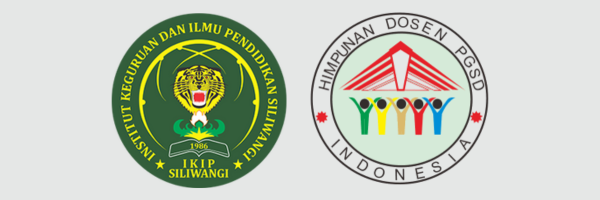The GEMBIRA Program: A Deep Learning-Based Model to Enhance Literacy Skills in Primary Education
DOI:
https://doi.org/10.22460/pej.v9i2.6220Kata Kunci:
Literacy , Deep learning, Literacy Ability, Reading, WritingAbstrak
This study aims to examine the effectiveness of the GEMBIRA Program in Grade 5 of elementary school, which integrates a deep learning approach to improve students’ reading and writing literacy skills. The program is designed to cultivate meaningful reading habits, reflective writing, and interactive storytelling through the stages of mindful, meaningful, and joyful learning. The research method used is a pre-experimental design with a one-group pretest-posttest approach. The sample consisted of 37 randomly selected students. Data were collected using observation instruments and analyzed both descriptively and inferentially using a t-test and n-gain calculation. The results showed an increase in the average score from 50.25 to 79.14 after the intervention, with an average n-gain score of 0.60, categorized as moderately effective. The t-test showed a significant difference (p = 0.000 < 0.05), indicating a statistically significant difference between pretest and posttest scores. These findings demonstrate that the deep learning-based Literasi Gembira Program is effective in holistically improving students’ reading and writing literacy skills, and it can serve as an innovative and enjoyable literacy learning model in elementary schools.
Referensi
Ahmad, A., Mustafa, B., Sunendar, D., & Septian, R. (2023). The Effect Of The Cooperative Integrated Reading And Composition Model Assisted Video Media On Reading Comprehension And Critical Thinking. PrimaryEdu : Journal of Elementary Education, 7(2), 186–198.
Akmal, A. N., Maelasari, N., Ilmu, T., & Islam, P. (2025). Pemahaman Deep Learning dalam Pendidikan : Analisis Literatur melalui Metode Systematic Literature Review ( SLR ). 8.
Anwas, E. O. M., Afriansyah, A., Iftitah, K. N., Firdaus, W., Sugiarti, Y., Sopandi, E., & Hediana, D. (2022). Students’ Literacy Skills and Quality of Textbooks in Indonesian Elementary Schools. International Journal of Language Education, 6(3), 233–244. https://doi.org/10.26858/ijole.v6i3.32756
Aryanto, S., Meliyanti, Amelia, D., Maharbid, A., Gumala, Y., & Gildore, P. (2025). Pembelajaran Literasi Dan Numerasi Melalui Deep Learning : Pendekatan Transformasional. 49–57.
Casal-Otero, L., Catala, A., Fernández-Morante, C., Taboada, M., Cebreiro, B., & Barro, S. (2023). AI literacy in K-12: a systematic literature review. International Journal of STEM Education, 10(1). https://doi.org/10.1186/s40594-023-00418-7
Chen, X., Chen, Z., Lin, L., Yan, H., Huang, Z., & Huang, Z. (2023). A Deep Learning-Based National Digital Literacy Assessment Framework Utilizing Mobile Big Data and Survey Data. IEEE Access, 11(September), 108658–108679. https://doi.org/10.1109/ACCESS.2023.3321831
Davy Tsz Kit, N. G., Luo, W., Chan, H. M. Y., & Chu, S. K. W. (2022). Using digital story writing as a pedagogy to develop AI literacy among primary students. Computers and Education: Artificial Intelligence, 3(September), 100054. https://doi.org/10.1016/j.caeai.2022.100054
Deng, J., Huang, X., & Ren, X. (2024). A multidimensional analysis of self-esteem and individualism: A deep learning-based model for predicting elementary school students’ academic performance. Measurement: Sensors, 33(March), 101147. https://doi.org/10.1016/j.measen.2024.101147
Dewi, L., & Fauziati, E. (2021). Pembelajaran Tematik di Sekolah Dasar dalam Pandangan Teori Konstruktivisme Vygotsky. Jurnal Papeda: Jurnal Publikasi Pendidikan Dasar, 3(2), 163–174. https://doi.org/10.36232/jurnalpendidikandasar.v3i2.1207
Dorris, C., Winter, K., O’Hare, L., & Lwoga, E. T. (2024). A systematic review of mobile device use in the primary school classroom and impact on pupil literacy and numeracy attainment: A systematic review. Campbell Systematic Reviews, 20(2). https://doi.org/10.1002/cl2.1417
Gall, M. D., Gall, J. P., & Borg, W. R. (2003). Educational Research: An Introduction. Allyn and Bacon. https://books.google.co.id/books?id=_rRhQgAACAAJ
Grotlüschen, A., Desjardins, R., & Liu, H. (2020). Literacy and numeracy: Global and comparative perspectives. International Review of Education, 66(2–3), 127–137. https://doi.org/10.1007/s11159-020-09854-x
Hastuti, F. E., & Sufianti, V. A. (2025). Meningkatkan Kemampuan Literasi Dini bagi Peserta Didik Kelas 1A MIN 2 Metro melalui Pendekatan Deep Learning dalam Pembelajaran Bahasa Indonesia. 5, 899–902.
Hikamudin, E., Riyadi, A. R., Aryanti, Peniasiani, D., Nuryani, P., & Gofur, R. (2023). Improving Elementary School Students’ Understanding of Literacy and Numeracy Through Digital Applications. MIMBAR PGSD Undiksha, 11(3), 462–467. https://doi.org/10.23887/jjpgsd.v11i3.64018
Husna, R. A. (2022). Peran Gerakan Literasi Sekolah Dalam Meningkatkan Motivasi Dan Minat Baca Siswa. LEARNING : Jurnal Inovasi Penelitian Pendidikan Dan Pembelajaran, 2(3), 201–208. https://doi.org/10.51878/learning.v2i3.1523
Islami, R. M., & Ferdianto, F. (2024). Gerakan Literasi Sekolah Meningkatkan Minat Membaca Siswa Kelas 4 Sekolah Dasar. Edukatif: Jurnal Ilmu Pendidikan, 6(2), 1477–1483.
Johansz, D. (2025). Pengaruh Penerapan Deep Learning Terhadap Kemampuan Literasi Membaca Siswa Sd Negeri Tiakur. Jurnal Review Pendidikan Dan Pengajaran, 8(2), 4555–4560.
Kemdikbud. (2017). Panduan Gerakan Literasi Nasional. Panduan Gerakan Literasi Nasional, 50. https://gln.kemdikbud.go.id/glnsite/wp-content/uploads/2017/08/panduan-gln.pdf
Kim, J. S., Burkhauser, M. A., Mesite, L. M., Asher, C. A., Relyea, J. E., Fitzgerald, J., & Elmore, J. (2021). Improving reading comprehension, science domain knowledge, and reading engagement through a first-grade content literacy intervention. Journal of Educational Psychology, 113(1), 3–26. https://doi.org/10.1037/edu0000465
Lynch, J., & Prins, E. (2023). Knowledge to Support Early Educators and Elementary School Teachers’ Engagement in Family Literacy and Family Literacy Programs. International Literacy Association, 76(5), 618–626. https://doi.org/10.1002/trtr.2187
Majorano, M., Bastianello, T., Bodea-Hategan, C., Fantuzzi, P., Fontana, G., Hoste, E., Lombardi, M., Standaert, A., Talas, D., Trifu, R., Vescogni, L., & Persici, V. (2021). Early Literacy Skills and Later Reading and Writing Performance Across Countries: The Effects of Orthographic Consistency and Preschool Curriculum. Child and Youth Care Forum, 50(6), 1063–1085. https://doi.org/10.1007/s10566-021-09611-7
Mullis, I. V. S., & Martin, M. O. (2019). Assessment framework. In OECD Review of Higher Education, Research and Innovation: Portugal. https://doi.org/10.1787/ef37cecd-en
Nirmala, S. D., & Puspita, R. D. (2025). Innovative E-Module Design Using the FIVES Model : Strengthening Literacy and Numeracy in Elementary Schools. 17, 1504–1518. https://doi.org/10.35445/alishlah.v17i1.6756
Nurmasari, L., Budiyono, Nurkamto, J., & Ramli, M. (2023). Mathematical Literacy in Primary Schools: A Systematic Literature Review. AIP Conference Proceedings, 2540(January). https://doi.org/10.1063/5.0105855
Odounfa, M. G. F., Gbemavo, C. D. S. J., Tahi, S. P. G., & Glèlè Kakaï, R. L. (2024). Deep learning methods for enhanced stress and pest management in market garden crops: A comprehensive analysis. Smart Agricultural Technology, 9(July), 100521. https://doi.org/10.1016/j.atech.2024.100521
OECD. (2023). Pisa 2022 Results. In Factsheets: Vol. I. https://www.oecd-ilibrary.org/education/pisa-2022-results-volume-i_53f23881-en%0Ahttps://www.oecd.org/publication/pisa-2022-results/country-notes/germany-1a2cf137/
Oktrifianty, E. (2021). Kemampuan Menulis Narasi di Sekolah Dasar (Melalui Regulasi Diri, Kecemasan dan Kemampuan Membaca Pemahaman). CV Jejak (Jejak Publisher). https://books.google.co.id/books?id=tPQ4EAAAQBAJ
Puspita, R. D. (2025). Penerapan Teori Konstruktivisme dalam Pembelajaran Pendidikan Pancasila di Kelas IV SDN 18 Dodu.
Salminen, J., Khanolainen, D., Koponen, T., Torppa, M., & Lerkkanen, M. K. (2021). Development of Numeracy and Literacy Skills in Early Childhood—A Longitudinal Study on the Roles of Home Environment and Familial Risk for Reading and Math Difficulties. Frontiers in Education, 6(October). https://doi.org/10.3389/feduc.2021.725337
Salsabila, S., & Megawati, F. (2024). Penguatan Kemampuan Literasi Bahasa Inggris Melalui Media Pembelajaran untuk Meningkatkan Motivasi Belajar bagi Siswa Sekolah Dasar. Jurnal Ilmiah Kampus Mengajar, 4, 60–71. https://doi.org/10.56972/jikm.v4i1.145
Schechter, R. L., Gross, R., & Janakiefski, L. (2025). Spalding ’ s The Writing Road to Reading. LXD RESEARCH.
Schrodt, K., FitzPatrick, E., Lee, S., McKeown, D., McColloch, A., & Evert, K. (2024). The Effects of Invented Spelling Instruction on Literacy Achievement and Writing Motivation. Education Sciences, 14(9). https://doi.org/10.3390/educsci14091020
Setiawan, B., Muharani, I. N., Arifin, M. Z., & Ardianto, D. (2024). Problematic Numerical Literacy in Elementary Schools : Systematic Literature Review. 8(1), 55–65.
Shara, A. M., Kisno, K., & Hasibuan, M. T. (2022). Reading and writing literacy in junior high school, Pematangsiantar. International Journal of Curriculum and Instruction, 14(2), 1457–1470. https://orcid.org/0000-0000-0000-0000
Sumargo, B. (2020). Teknik Sampling. UNJ PRESS. https://books.google.co.id/books?id=FuUKEAAAQBAJ
Susianti, T. S., Salimi, M., Arsy, R. A., & Hidayah, R. (2021). Dampak Implementasi Gerakan Literasi Sekolah pada Sikap Peserta Didik di SD N 1 Pandowan. Edukasi: Jurnal Penelitian Dan Artikel Pendidikan, 13(1), 55–68. https://doi.org/10.31603/edukasi.v13i1.5051
Tedre, M., Toivonen, T., Kahila, J., Vartiainen, H., Valtonen, T., Jormanainen, I., & Pears, A. (2021). Teaching Machine Learning in K-12 Computing Education: Potential and Pitfalls. http://arxiv.org/abs/2106.11034
Wagner, D. A., & Hedidar, W. (2023). Literacy and international development. In R. J. Tierney, F. Rizvi, & K. Ercikan (Eds.), International Encyclopedia of Education (Fourth Edition) (Fourth Edi, pp. 717–722). Elsevier. https://doi.org/https://doi.org/10.1016/B978-0-12-818630-5.07110-4
Wulandari, M. D., Patriana, W. D., & Sutama. (2021). Pengelolaan Pembelajaran Berorientasi Literasi Numerasi di Sekolah Dasar dalam Kegiatan Kurikuler dan Ekstrakurikuler. Jurnal Pemikiran Dan Pengembangan Sekolah Dasar, 9(2), 116–131.
Yue Yim, I. H. (2024). A critical review of teaching and learning artificial intelligence (AI) literacy: Developing an intelligence-based AI literacy framework for primary school education. Computers and Education: Artificial Intelligence, 7(September), 100319. https://doi.org/10.1016/j.caeai.2024.100319
Zhang, S. Z., Inoue, T., Shu, H., & Georgiou, G. K. (2020). How does the home literacy environment influence reading comprehension in Chinese? Evidence from a 3-year longitudinal study. Reading and Writing, 33(7), 1745–1767. https://doi.org/10.1007/s11145-019-09991-2
Unduhan
Diterbitkan
Terbitan
Bagian
Lisensi

Artikel ini berlisensiCreative Commons Attribution-ShareAlike 4.0 International License.
The author is responsible for acquiring the permission(s) to reproduce any copyrighted figures, tables, data, or text that are being used in the submitted paper. Authors should note that text quotations of more than 250 words from a published or copyrighted work will require grant of permission from the original publisher to reprint. The written permission letter(s) must be submitted together with the manuscript.











